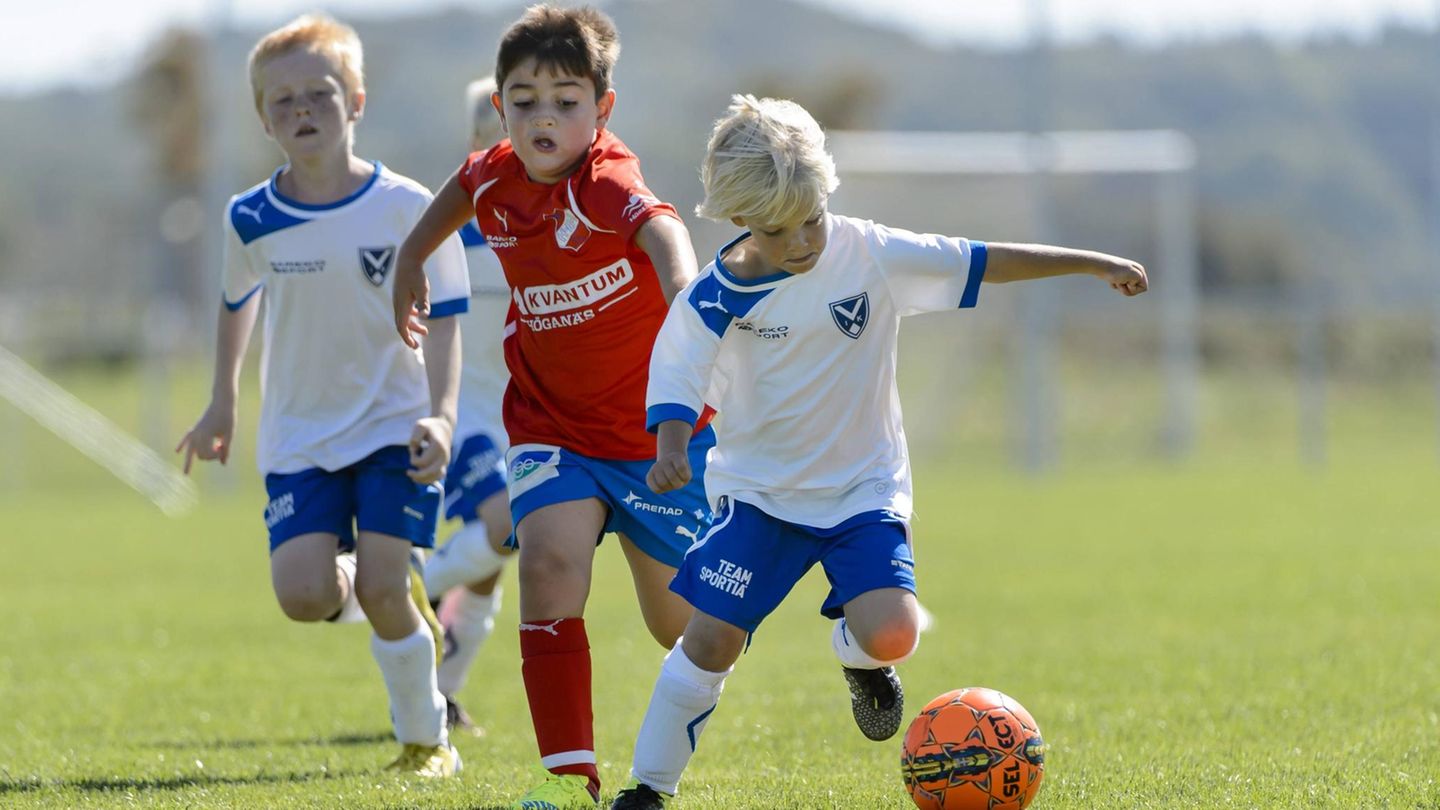BVB boss Hans-Joachim Watzke polemically described the DFB reform in children’s and youth football as “unbelievable”. The criticism is met with incomprehension by young coach Yannic Fengler from the Berlin Football Association.
In 2022, after a pilot phase lasting several years, the DFB Bundestag unanimously decided to reform children’s and youth football. It is scheduled to be implemented across Germany from 2024. But for weeks there has been a hail of criticism from some prominent trainers, officials and experts. One of the most powerful men in German football, who is also DFB Vice President and Chairman of the Supervisory Board of the German Football League, called the reform “unbelievable” because the performance principle was allegedly being undermined, and announced a “reform of the reform”.
DFB President Bernd Neuendorf was “surprised” by Watzke’s polemical statements. DFB director Hannes Wolf, who is responsible for implementation, warned in view of the unanimous Bundestag vote: “We should therefore take our own decisions seriously.”
You have to convince skeptics
But how do people view the reform at the grassroots level? Is this just taking the “shallow and easy path”, as the coach of 1. FC Köln, Steffen Baumgart, complained?
It’s worth taking a look at the capital here. The Berlin Football Association (BFV) began implementing the reform in the G youth (U7) last season. This season the F and E youth teams are following on a voluntary basis. Yannic Fengler, a member of the BFV youth committee and himself a young coach, is responsible. Fengler is in favor of the reform, which has been well received, even if not all coaches and parents are yet convinced of the new forms of play: “Basically, there are two camps in Berlin. There are those who are positive about the reform and have already tackled it before its mandatory implementation “On the other hand, there are also those who are a little skeptical about the whole thing. They say, let’s see how the whole thing works. But basically the mood in Berlin is positive,” he told the star on the phone. There are “over a thousand registrations” from teams for the new season.
He has a clear opinion on the statements made by Watzke, Baumgart and other critics: “It may sound a little harsh now, but first of all you can laugh about things like this to a certain extent,” he said. Nevertheless, he emphasized the importance of criticism. Fengler admits that it is obviously necessary to “work harder to create understanding for the new forms of play”. In Berlin, the association is in close contact with the youth academies of Hertha BSC and Union Berlin. “Both clubs support the new forms of play. And then you have to tell Aki Watzke or Steffen Baumgart, deal with the topic and then you’ll see what the advantages are.”
Fengler: Tables have no meaning for children
The fact that tables and game results are no longer has any meaning for children of that age. “If you go to a game on the weekend and see a typical score of 20-0, that doesn’t help any child. Now there are eight fields, every child gets a lot of playing time, and losing is part of it. The advantage is that a defeat doesn’t mean much It has an influence because the next game is coming up and you can give everything to win again.”
A core of the reform is the so-called “festival” system. Instead of a league game, several mini-teams with a fixed rotation of players play a kind of tournament. Scoring goals, winning and losing are retained, only tables and entering the results are omitted (see info box). “The advantages of the new forms of play definitely outweigh the disadvantages,” said Fengler. “I also see that in my club (FC Stern Marienfelde, editor’s note). The children have fun because they have so much contact with the ball and often shoot at goal or prevent goals.” Everyone gets plenty of “playing time”. The most important thing is that the children are “happy” and you can see that “every weekend”.
The new game system in children’s football
From the 2024/25 season should in kids football must be played in a “festival” system. League games and tables will be abolished. In the future, several teams will compete against each other in a tournament format on mini fields, each with several small goals. The youngest play two against two. The older the kids get, the bigger the teams get, and the more often big youth goals involving goalkeepers become involved. Each team has a fixed rotation principle for substitutes (change after every goal), and everyone receives roughly the same amount of playing time. If a team is behind 3-0, they receive one more player. The winners (yes, they still exist!) move up one playing field, the losers move back one. At the end, equally powerful teams face each other and can compete. The playing times vary depending on the participating teams, but should be a maximum of 15 minutes (e-youth).
In youth football from U17 to U19 The junior Bundesliga will be abolished and replaced by the youth league. The 56 football clubs with youth training centers are automatically included and cannot be relegated. Eight amateur clubs fill the field. The 64 clubs will be divided into eight regional relays with eight teams. The two best teams in each season advance to the knockout round, in which the championship title is decided.
Fengler also supports the reforms in youth football from U17 to U19. There the Bundesliga is to be replaced by a youth league from which you cannot be relegated. England, Belgium and the Netherlands, where similar training methods prevail, serve as role models. “Take a look at England. There is no league at all until the age of 18 and that is seen very positively by the young people there. The problem with the old system is that far too often attention is paid to the result and not to the training of the young people .” Jamal Musiala, who spent his youth years in England, is a prime example of how a system works better with less pressure.
The aim of this reform is to minimize the “relative age effect”. This describes the phenomenon that younger players in youth teams are often disadvantaged. If the coach or the club wants success like promotion, he logically uses more powerful players, and these are usually the older ones because they are more physically developed. In such a system it is mainly about the club and not about the player, said Fengler. “This effect will no longer apply in the future, and I think that’s a good thing.”
Source: Stern
I am Pierce Boyd, a driven and ambitious professional working in the news industry. I have been writing for 24 Hours Worlds for over five years, specializing in sports section coverage. During my tenure at the publication, I have built an impressive portfolio of articles that has earned me a reputation as an experienced journalist and content creator.




